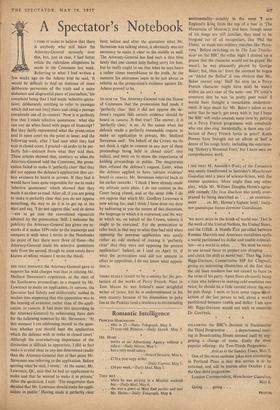TO SUM UP. The Attorney-General told the House of Commons
that the prosecution had made it 'perfectly clear' that it did not oppose the de- fence's request that certain evidence should be heard in camera. Is that true? The answer, it is 'perfectly clear,' is no. At the outset when the defen& made a perfectly reasonable request to make an application in private, Mr. Melford Stevenson said : 'On behalf of the Crown we do not think it right to consent to any part of these proceedings being held in closed court' (my italics), and went on to stress the importance of holding proceedings in public. The magistrates then refused the defence's request. Later, when the defence applied to have 'certain evidence' heard in camera, Mr. Stevenson referred back to his earlier remarks: 'I think I have already made my attitude quite plain. I do not consent to the Court being closed, and at the same time I do not oppose that which Mr. Geoffrey Lawrence is now asking for, and I think I have done my duty by indicating to you the nature of this discretion, the language in which it is expressed, and the way in which we, on behalf of the Crown, submit it ought to be exercised.' For the prosecution to refer back in that way to what they had said when opposing the previous application was surely rather an odd method of making it 'perfectly clear' that they were not opposing the present application! Indeed, as 1 said on April 19, if what the prosecution said did not amount in effect to opposition, I do not know what opposi- tion is.


































 Previous page
Previous page